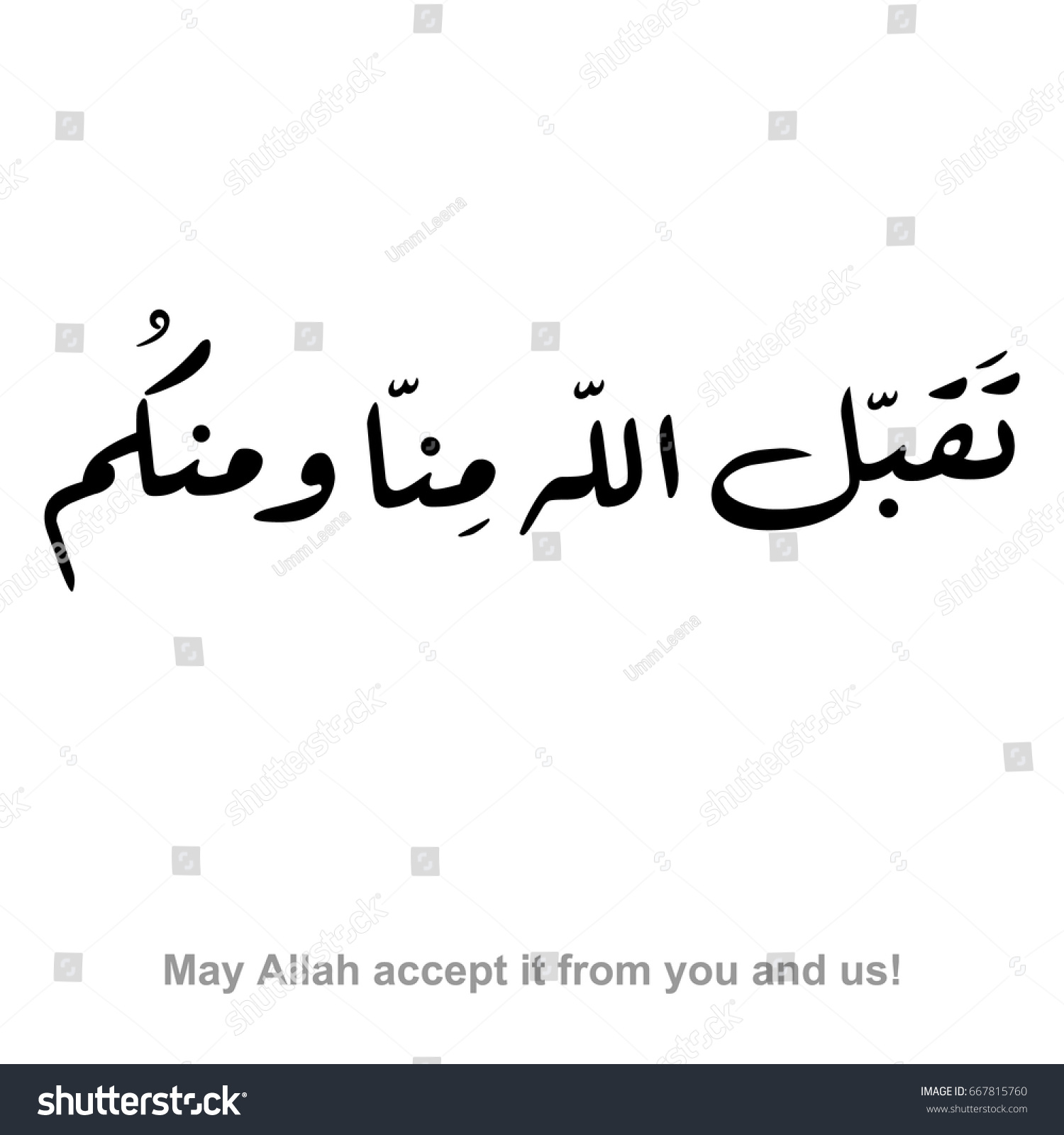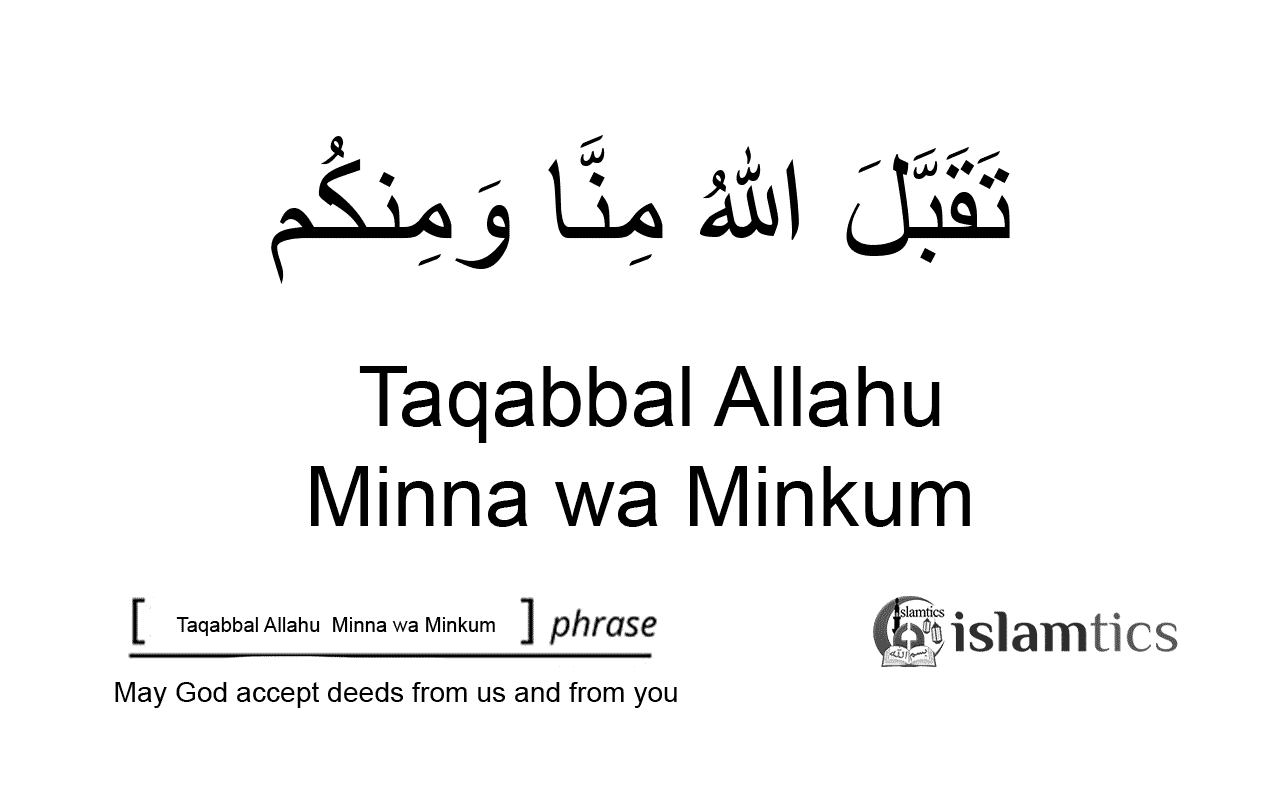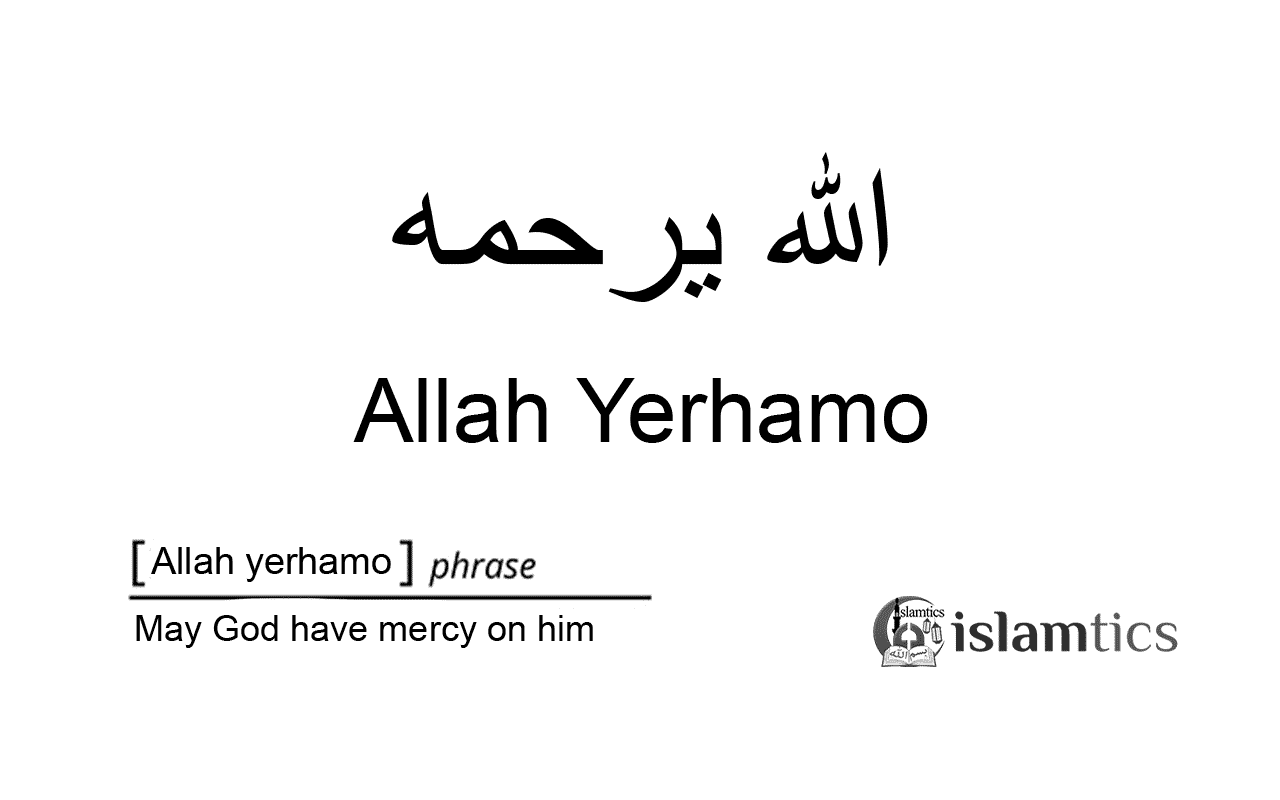When special times come around, like the joyous days of Eid, you often hear warm wishes shared among friends and family. One phrase that stands out, carrying a really deep sentiment, is "Taqabbalallahu Minna Wa Minkum." This isn't just a simple hello; it's a profound prayer, a very hopeful wish, that people share with one another. It's almost a way of saying, "I truly hope all the good things you've done are accepted."
Understanding what "Taqabbalallahu Minna Wa Minkum" truly means can actually make your celebrations feel even more connected. It helps you appreciate the spiritual bond that people share during these important moments. It's a phrase that brings people closer, a bit like a shared understanding of hope and well-wishing.
So, we're going to explore this beautiful phrase, looking at its components, its history, and why it holds such a special place in the hearts of many. You know, it's pretty interesting how a few words can carry so much weight and meaning for a community, especially during festive seasons. It's more or less a cornerstone of how people express their good wishes.
Table of Contents
- What "Taqabbalallahu Minna Wa Minkum" Really Means
- Breaking Down the Words: A Closer Look
- When Do People Say "Taqabbalallahu Minna Wa Minkum"?
- The History and Significance of This Greeting
- The Spiritual Impact of This Special Phrase
- How to Respond to "Taqabbalallahu Minna Wa Minkum"
- Common Misconceptions About This Phrase
- Beyond Eid: Other Times It's Used
- Cultural Variations and Similar Greetings
- Frequently Asked Questions About "Taqabbalallahu Minna Wa Minkum"
- Sharing the Spirit of "Taqabbalallahu Minna Wa Minkum"
What "Taqabbalallahu Minna Wa Minkum" Really Means
The phrase "Taqabbalallahu Minna Wa Minkum" translates to something like, "May Allah accept from us and from you." It's a prayer, a sincere wish that all the good deeds, the prayers, the fasting, and the acts of charity performed by both the speaker and the person being greeted are accepted by God. It’s a very humble request, a recognition that ultimate acceptance comes from a higher power. This greeting, you know, really shows a deep sense of humility and hope.
It’s not just a polite way to greet someone; it carries a deep spiritual message. People say it hoping that their efforts, and the efforts of their loved ones, during a specific period of worship, like the month of Ramadan or the pilgrimage, are truly acknowledged and rewarded. It's a way to express collective hope and shared spiritual aspiration, which is pretty powerful.
This phrase is often used after major religious observances, symbolizing the completion of a period of devotion. It’s a moment to look back at the efforts made and to look forward with optimism, trusting in divine mercy. So, it's almost a hopeful closing remark to a time of spiritual exertion.
Breaking Down the Words: A Closer Look
To truly grasp the essence of "Taqabbalallahu Minna Wa Minkum," let's break down each part of this beautiful Arabic expression. Each word carries a specific weight and contributes to the overall profound message. It’s quite interesting, in a way, how these individual pieces fit together to form such a complete thought.
- Taqabbalallahu (تَقَبَّلَ اللَّهُ): This part means "May Allah accept." The word "Taqabbal" comes from the root meaning "to accept" or "to receive with pleasure." "Allah" refers to God. So, it's a direct invocation, a very earnest prayer for divine acceptance.
- Minna (مِنَّا): This means "from us." It refers to the speaker and those they represent, perhaps their family or community. It’s a collective acknowledgment of their own efforts and hopes for acceptance.
- Wa (وَ): This is a conjunction, meaning "and." It links the two parts of the prayer, showing that the wish extends to both parties involved in the greeting.
- Minkum (مِنكُمْ): This means "from you." It refers to the person or people being greeted. This makes the prayer reciprocal, a shared hope for mutual acceptance of good deeds.
Basically, when you put these parts together, the phrase becomes a comprehensive prayer. It's a mutual wish for divine acceptance of everyone's good deeds. It's pretty much a reflection of shared spiritual goals and community solidarity.
When Do People Say "Taqabbalallahu Minna Wa Minkum"?
The most common time you hear "Taqabbalallahu Minna Wa Minkum" is during the Eid holidays, specifically Eid al-Fitr and Eid al-Adha. After the Eid prayers, as people greet each other, this phrase becomes a staple. It’s a way of celebrating the completion of Ramadan's fasting or the rituals of Hajj and sacrifice. It’s a very customary thing to say, you know, during these festive times.
While Eid is the primary occasion, this greeting can also be used in other contexts where people want to express a wish for the acceptance of good deeds. For instance, after someone completes a significant act of worship, like returning from Hajj or performing a special prayer, someone might say it. It’s a versatile phrase, in some respects, for acknowledging spiritual effort.
It’s not something you say as a daily greeting. It carries a certain weight, a specific spiritual context. It's usually reserved for moments of communal spiritual significance, making it truly special when it is exchanged. So, it's a bit more formal than just saying "hello."
The History and Significance of This Greeting
The practice of saying "Taqabbalallahu Minna Wa Minkum" after Eid prayers has roots in the traditions of the early Muslim community. While there isn't a direct, explicit command from the Prophet Muhammad (peace be upon him) to say this specific phrase, historical accounts suggest that companions would exchange similar well-wishes. It's basically a custom that grew organically within the community.
For example, it is narrated that when the companions of the Prophet met on the day of Eid, they would say to each other, "Taqabbalallahu Minna Wa Minkum." This indicates that the practice has been around for a very long time, passed down through generations. It's a sign of continuity and tradition, you know, connecting people to their past.
The significance lies in its communal aspect. It’s a reminder that worship is not just an individual act but something that binds the community together. By wishing acceptance for one another, people reinforce their shared faith and mutual support. It's a very powerful symbol of unity and collective hope, really.
The Spiritual Impact of This Special Phrase
Saying "Taqabbalallahu Minna Wa Minkum" goes beyond mere words; it creates a spiritual atmosphere. It fosters a sense of humility, as it acknowledges that human efforts, no matter how sincere, require divine acceptance to be truly meaningful. This phrase, you know, encourages a deeper reflection on one's actions.
It also promotes optimism and hope. After a period of intense worship, like fasting for a month, people might feel a mix of relief and perhaps a little apprehension about whether their efforts were enough. This greeting serves as a comforting reassurance, a shared prayer that all will be well. It's a way of lifting spirits, basically.
Furthermore, it strengthens community bonds. When you wish acceptance for someone else's deeds, it shows genuine care and solidarity. It transforms a simple greeting into an act of kindness and spiritual encouragement. It's a very human way to connect on a deeper level, actually.
How to Respond to "Taqabbalallahu Minna Wa Minkum"
When someone says "Taqabbalallahu Minna Wa Minkum" to you, the most common and appropriate response is to say the exact same phrase back: "Taqabbalallahu Minna Wa Minkum." This creates a beautiful reciprocity, a mutual prayer for acceptance. It's a simple yet very effective way to return the good wishes.
Alternatively, some people might respond with "Ameen" (meaning "Amen" or "So be it"), acknowledging the prayer. Or they might say "Khair Mubarak," which is a general greeting meaning "blessed goodness." However, repeating the original phrase is generally preferred as it perfectly mirrors the sentiment. It's pretty much the standard response, you know.
The key is to respond with sincerity and a warm heart, reflecting the spirit of the greeting itself. It’s about sharing that hope and prayer for divine acceptance with the other person. So, it's a very personal exchange, really.
Common Misconceptions About This Phrase
One common misconception is that "Taqabbalallahu Minna Wa Minkum" is a mandatory greeting prescribed directly by religious texts for Eid. While it's a deeply cherished tradition, as we discussed, its widespread use comes more from the practice of the early generations rather than a direct command. It's a bit of a nuanced point, that.
Another misunderstanding might be that it's only for Eid. While Eid is its primary context, the underlying prayer for acceptance can be relevant in other situations of significant worship. However, it’s not a casual, everyday phrase. It maintains its special status due to its specific use. So, it's not something you'd just throw around, basically.
Some might also think it's a magical incantation that guarantees acceptance. However, it's a prayer, a supplication. Acceptance ultimately rests with the Divine, based on sincerity and adherence to principles. It's a hopeful plea, not a guarantee. It's almost a humble acknowledgment of human limitations, in a way.
Beyond Eid: Other Times It's Used
While Eid is the most prominent time for "Taqabbalallahu Minna Wa Minkum," its meaning of seeking divine acceptance makes it suitable for other occasions of spiritual significance. For instance, after completing the Hajj pilgrimage, pilgrims might exchange this phrase. It marks the culmination of a very demanding spiritual journey. It's a very fitting sentiment, really, for such a moment.
Similarly, after someone completes a significant voluntary fast, or a long period of intense prayer, or even after a collective act of charity, this phrase could be used. It expresses the shared hope that these efforts are well-received by God. It’s a way to acknowledge and appreciate the spiritual dedication of others. So, it's pretty versatile for moments of devotion.
It's about the spirit of the phrase – the wish for acceptance of good deeds. So, while not as common as its use during Eid, its application can extend to any moment where people feel they have completed an act of worship and wish for its divine approval. It's more or less about the intention behind the words.
Cultural Variations and Similar Greetings
Across different Muslim cultures, while "Taqabbalallahu Minna Wa Minkum" is widely recognized, you might also hear other greetings during Eid. For example, "Eid Mubarak" (Blessed Eid) is a universal and very common greeting. This phrase, you know, is pretty much understood everywhere.
In some regions, people might use local phrases that carry a similar meaning of blessing or acceptance. For instance, in Turkey, "Bayramınız mübarek olsun" is common, which means "May your Eid be blessed." These variations reflect the rich tapestry of Islamic cultures while conveying similar sentiments of joy and good wishes. It’s a bit like different dialects of the same heartfelt message.
The core idea remains the same: sharing happiness, expressing good wishes, and praying for divine blessings and acceptance. Whether it’s "Taqabbalallahu Minna Wa Minkum" or another phrase, the intention is to foster unity and joy. It's a very human way of celebrating together, basically.
Frequently Asked Questions About "Taqabbalallahu Minna Wa Minkum"
What is the response to Taqabbalallahu Minna Wa Minkum?
The most common and appropriate response is to say "Taqabbalallahu Minna Wa Minkum" back to the person who greeted you. This creates a mutual prayer, a shared wish for divine acceptance of good deeds. You could also say "Ameen" or "Khair Mubarak," but repeating the phrase is usually preferred, you know.
When do you say Taqabbalallahu Minna Wa Minkum?
People most commonly say "Taqabbalallahu Minna Wa Minkum" during the Eid holidays, specifically Eid al-Fitr and Eid al-Adha, after the communal prayers. It can also be used after other significant acts of worship, like returning from Hajj, to express a wish for divine acceptance of those efforts. So, it's typically for special, spiritual moments, really.
Is Taqabbalallahu Minna Wa Minkum a Sunnah?
While the exact phrase "Taqabbalallahu Minna Wa Minkum" is not a direct prophetic teaching (Sunnah) in the sense of a specific command, it is a practice that has been narrated from the companions of the Prophet. This means it's a deeply rooted tradition and a beloved custom within the Muslim community, reflecting the spirit of mutual well-wishing. It's basically a very old and respected practice.
Sharing the Spirit of "Taqabbalallahu Minna Wa Minkum"
Understanding "Taqabbalallahu Minna Wa Minkum" helps us appreciate the depth of Islamic greetings, especially during festive times. It's a phrase that carries a powerful prayer for divine acceptance, fostering humility, hope, and strong community bonds. As we approach moments of celebration, remembering its meaning can enrich your interactions and connections with others. It's a very thoughtful way to engage, you know.
This greeting reminds us that our efforts in devotion are part of a larger, shared spiritual journey. By wishing acceptance for one another, we reinforce the collective hope for divine mercy and reward. It’s a beautiful reflection of solidarity and mutual support, which is pretty special. To learn more about various aspects of our community, you could explore our main site here.
So, the next time you hear or say "Taqabbalallahu Minna Wa Minkum," remember the profound meaning behind those words. It's more than just a phrase; it's a heartfelt prayer, a wish for shared blessings, and a symbol of unity. For further discussions on similar topics, you might find more content on this page.
To deepen your understanding of Islamic traditions and their significance, you might find resources from reputable Islamic scholars and institutions helpful. For instance, the IslamQA website offers detailed insights into various religious matters, including the history and permissibility of this greeting. It's a very good place to start, basically, for more information.



Detail Author:
- Name : Danielle Christiansen
- Username : vladimir.block
- Email : joanne.metz@grady.biz
- Birthdate : 1995-09-18
- Address : 581 Kozey Views Macitown, WY 68035
- Phone : 505.685.2535
- Company : Goyette PLC
- Job : Statement Clerk
- Bio : Mollitia ducimus sint odit expedita enim illum et. Tenetur facilis sed illum libero. Et amet voluptatem porro qui optio iusto. Quidem aut dignissimos non voluptatem dolores suscipit maxime.
Socials
tiktok:
- url : https://tiktok.com/@lynn646
- username : lynn646
- bio : Similique mollitia corporis molestias omnis officia qui.
- followers : 3535
- following : 647
twitter:
- url : https://twitter.com/lynn_xx
- username : lynn_xx
- bio : Repellendus qui veritatis blanditiis culpa sit ut. Sed qui sint est aut quod voluptatum. Rem qui eos et atque molestias ad. Et ut fugiat illo voluptatem neque.
- followers : 2785
- following : 94
instagram:
- url : https://instagram.com/lynn_xx
- username : lynn_xx
- bio : Autem praesentium est facilis. Modi provident et qui. Sed reiciendis et doloribus illo sequi.
- followers : 2114
- following : 120
linkedin:
- url : https://linkedin.com/in/bechtelar2015
- username : bechtelar2015
- bio : Alias qui vero quasi nam quas totam.
- followers : 4413
- following : 2461

